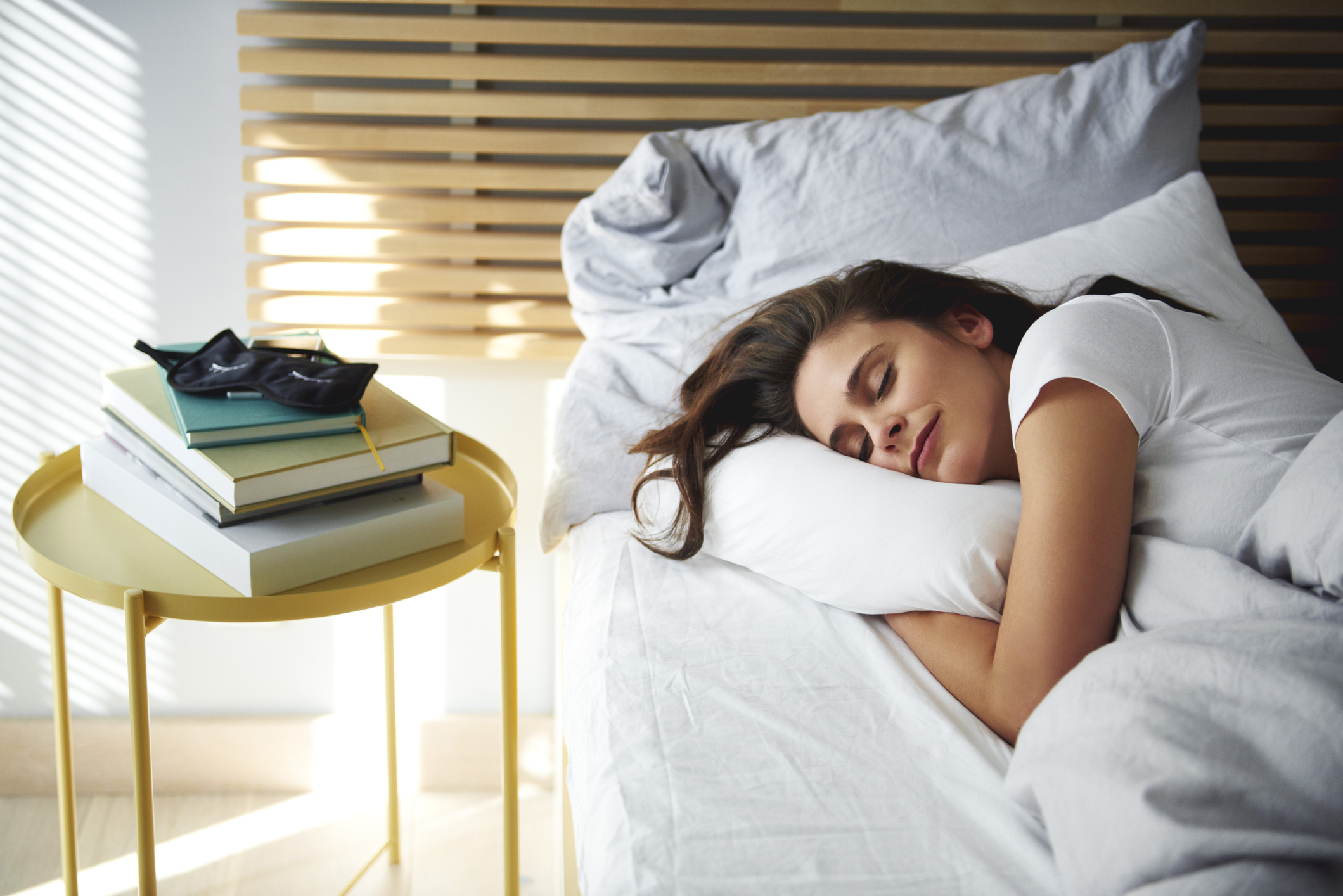
Learning how to sleep better is always important, but it is especially so right now in these... unprecedented times we are living through. Sleep is crucial to good health, both physical and mental, and it is absolutely essential to get enough of good quality sleep to protect your immune system.
It is understandable that some loss of sleep will be due to the heightened stress we're all experiencing. But there are plenty of details about how and where you sleep that can be tweaked to get some relief. It might be that you need a new mattress, or perhaps a new pillow. Maybe the room could be darker, or you need to make sure your room is quieter. We will cover all the ways you can create the perfect sleeping environment right here...
- Find all the best sleep aids too in our buying guide.
1. Go to bed at the same time each evening
In order to sleep better you need to reset your body clock. Try going to bed at the same time every evening and get up at the same time every morning. Pick a time that you start to naturally feel tired to go to bed and test not setting an alarm to see what time your body naturally wakes you up. What this solid routine will hopefully do is teach your body to recognize it needs sleep around the same time each evening and you won't be left tossing and turning when you get into bed.
2. Avoid lying in and be wary of naps
We know there will be times when a nap is unavoidable but if you struggle to sleep at night, going back to bed for hours in the afternoon could just makes things worse. If you do feel the need to nap, stick to just 20 minutes in the early afternoon so you are less likely to effect your sleep cycle.
Weekend lie ins can also mess up your natural sleep cycle that you have within the week, and also create this almost jet-lag like feeling when it comes to going to bed and getting up at your normal time.
3. Start a bedtime routine
Regardless of how much effort you put into creating the perfect sleep environment in your bedroom, it’s your evening routine, particularly in the hour leading up to bedtime, that affects the quality of your sleep most.
One of the most common mistakes people make preventing them from sleeping well is exercising right before bedtime. A trip to the gym before bed may seem like a good way to tire yourself out, but you are raising your heart rate and body temperature, which is exactly the opposite of what your body needs to get to sleep. You should stop all strenuous physical activity at least two hours before bedtime.
Love a big dinner with wine? Finish eating and drinking alcohol two, and ideally three, hours before bedtime. While the food and drink may make you feel sleepy initially, you’re more likely to wake up in the night, for three reasons: acid reflux, adenosine levels raised by alcohol dropping in the middle of the night, or needing to get up to go to the toilet (alcohol is a diuretic).
Finally, try to develop a relaxing routine for an hour before bed and stick to it. Whether it’s reading (see points 4 and 6 above), playing with a pet, or meditation, a gentle activity is best at telling your brain that it’s time to wind down for the day. '
4. Get your sleep environment right
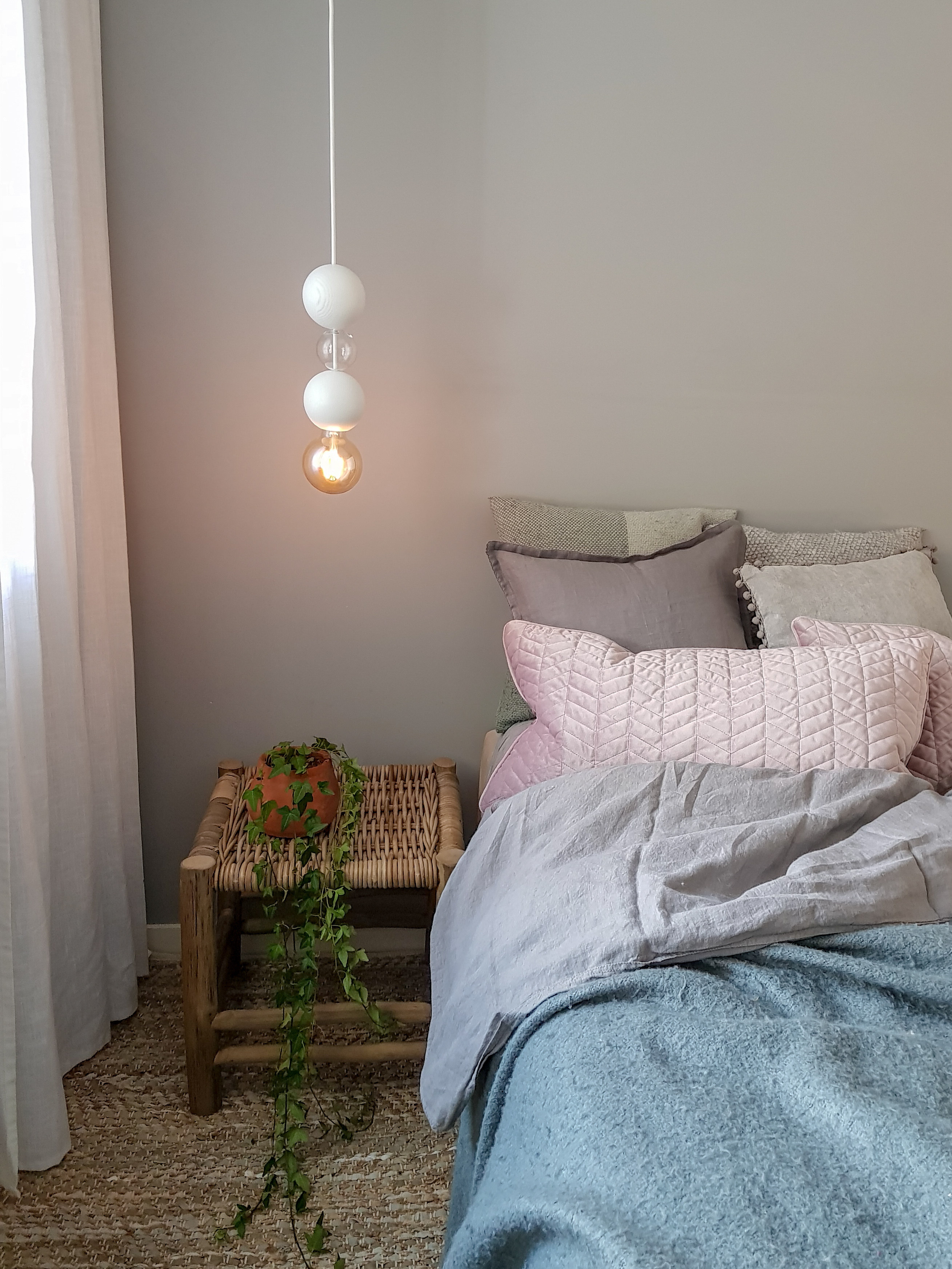
Your sleeping environment is very important in getting the best night’s sleep. Neither too hot or too cold (the ideal temperature is around 16˚C, so slightly on the cool side), and as quiet and dark as possible.
Linens should be clean, cool and crisp and ideally cotton, which helps skin to breathe, plus bed linens should be changed once a week as we lose a half pint or more of fluid each night (yes, really).
'Getting rid of clutter, mess and anything that is going to create a distraction visually or mentally whilst you try to sleep is essential.' continues Karen. 'In addition, reducing noise disruption and creating a space that is going to be cool, dark and airy is the ideal scenario as the more you can turn the room into a true sleep sanctuary, the better chance you have of good quality sleep on a consistent basis.'
5. Make sure your mattress is spot on

It goes without saying in order to sleep well your bed needs to be comfortable. It’s difficult to get deep, restful sleep on one that’s too hard, too soft, too small or too old.
The Sleep Council recommend trying to replace your mattress every seven years, with research showing that swapping an uncomfortable one for a new one resulted in nearly an hour of extra sleep a night… just imagine that for a second!
Take time to choose and properly test your mattress before buying it – it's never been easier to take advantage of a no-quibbles return if buying online.
- Check out our best mattress buying guide for all our top picks.
6. And your pillows too
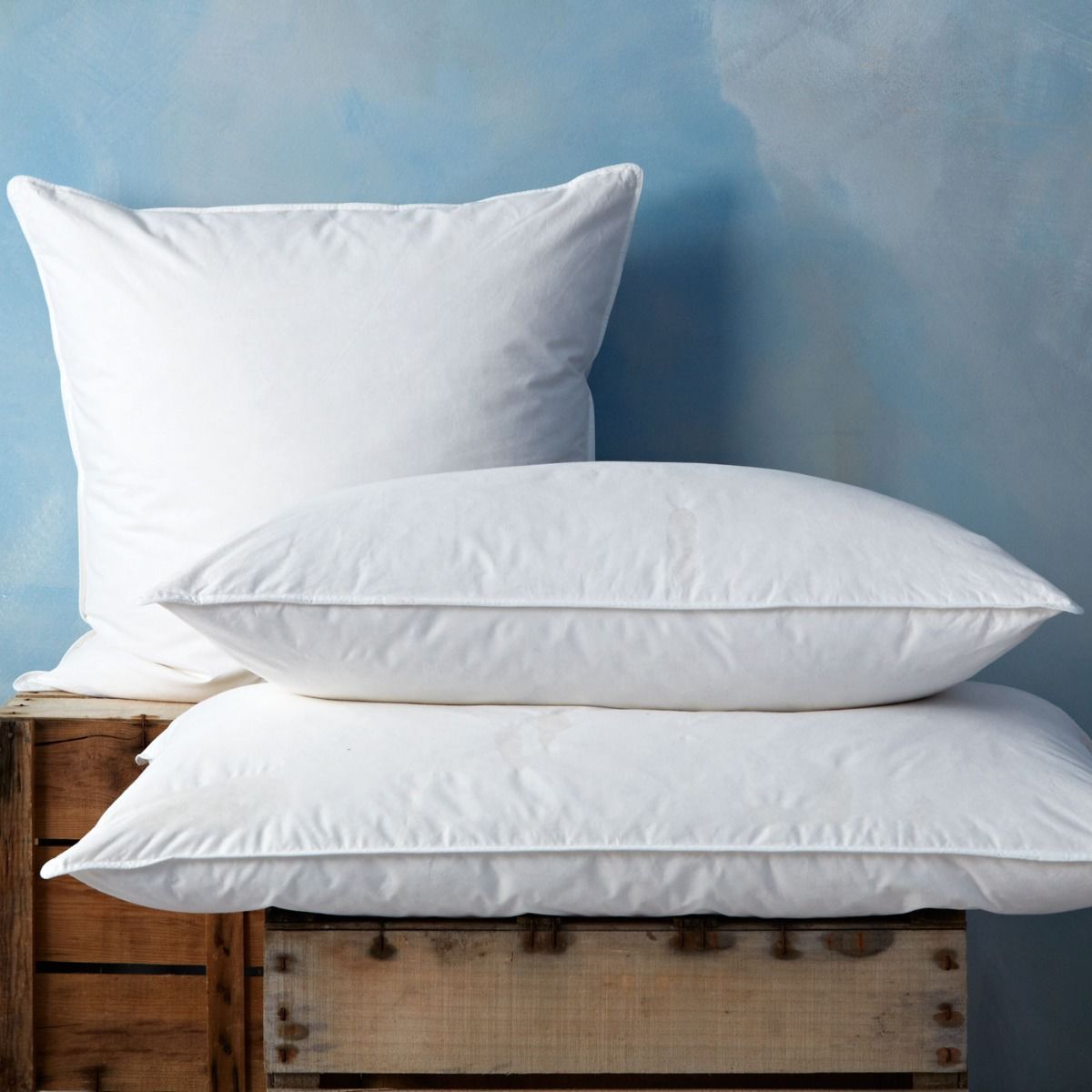
Whether you sleep on your back or side, the primary purpose of the pillow is to slightly raise your head during sleep to prevent neck pain and to ensure good spinal alignment.
Historically, pillows were never soft or plump, like they are now: ancient Mesopotamians, for example, slept on pillows made from stone (yes, really), while other ancient nations slept on anything from wood to pillow prototypes filled sawdust, straw, and wool.
Those pillows would have been thin and firm, and are still the ideal type of pillow if you sleep on your back – although the fillings have obviously moved on since then. Back sleepers needn't be limited to one pillow, though – if you suffer from lower back pain, you might find that a second pillow beneath the backs of your knees relieves the pressure there and stops you waking up with back pain.
If, however, you sleep on your side, you will probably benefit from two pillows, but the second one should go between your knees to alleviate pressure on your thighs and lower spine – unless of course you can roll your duvet between your knees. The pillow you rest your head on can be softer and more voluminous than if you sleep on your back to prevent shoulder pain. Some people (including some of the side sleepers on the Realhomes.com team) prefer a firmer below beneath a softer pillow.
And if you sleep on your front? Consider sleeping without any pillow at all, or go for a very thin one.
- Browse our pick of the best pillows.
7. Trying reading a book if you can't sleep
While it may seem odd if you can't sleep, to get out of bed, turn on the light and start reading, experts actually recommend that if you’ve been lying there for more than 20 minutes, get out of bed and read a book under dim light until you feel sleepy. It's important to leave your bedroom and go and sit elsewhere, say on your sofa, as the bedroom should always be associated with sleep.
- Help on how to stop snoring if this is keeping you up at night
8. Leave your phone outside the bedroom
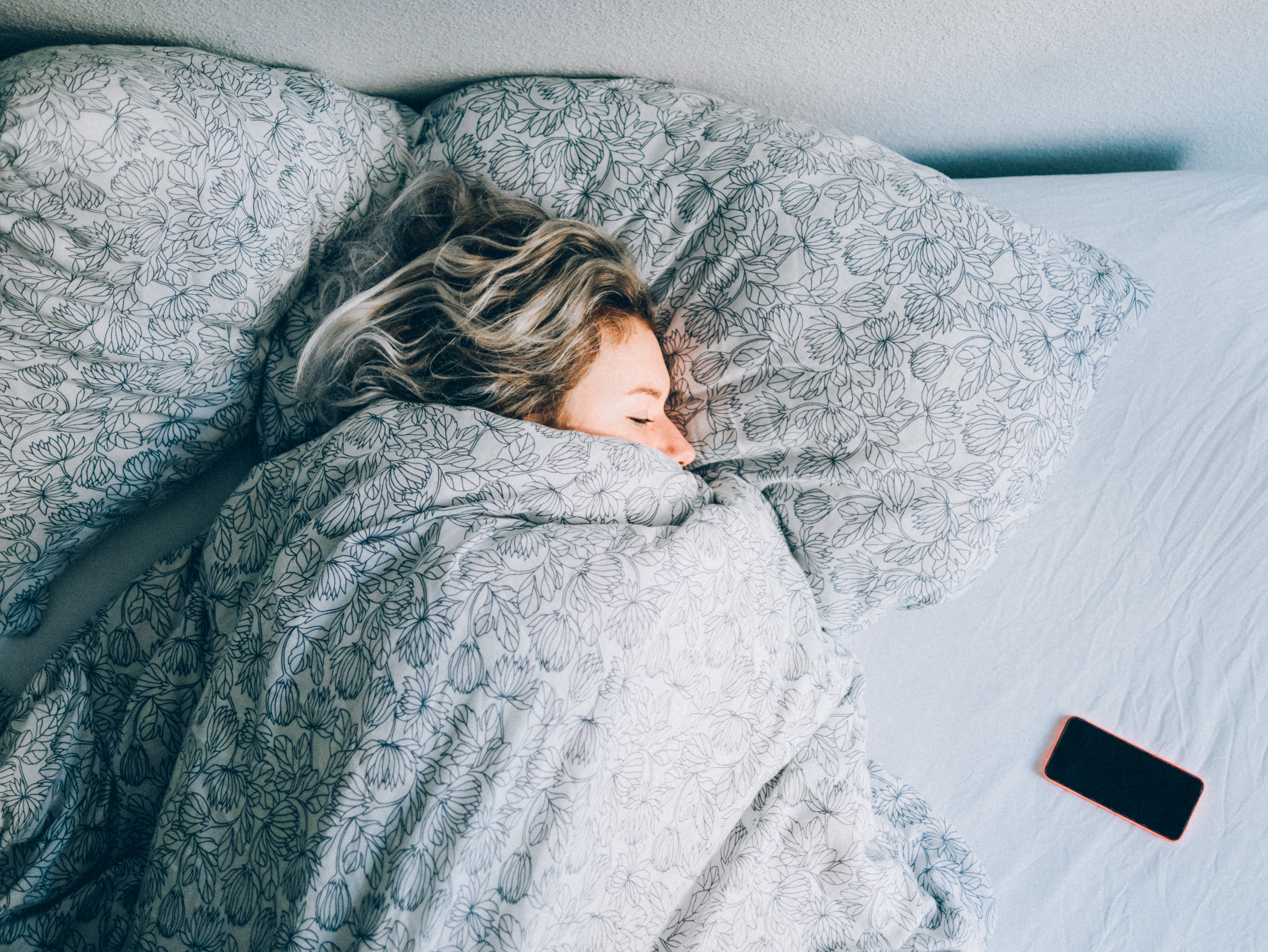
We're all guilty of a scroll through Instagram or final check of emails last thing at night, but if you're really serious about getting a good night's sleep this needs to change.
Tech should be avoided before bed – in particular the hour before it. The blue light that emits from devices messes around with your body’s circadian rhythms by suppressing the sleep-inducing hormone melatonin in the brain, which is what we need in order to feel sleepy.
9. Eat breakfast every day
Skipping breakfast is bad for us – it messes with our metabolism and is a major cause of over-eating later in the day. Eating breakfast within half an hour of getting up gives you the energy you need to last you until lunchtime, but it also has the surprising effect of promoting better sleep at night. Basically, if you aren't eating breakfast, your body goes into stress mode from hunger (even if you don't feel hungry in the mornings), and the stress hormones linger, making drifting off to sleep harder.
10. Eat foods that will help you sleep better
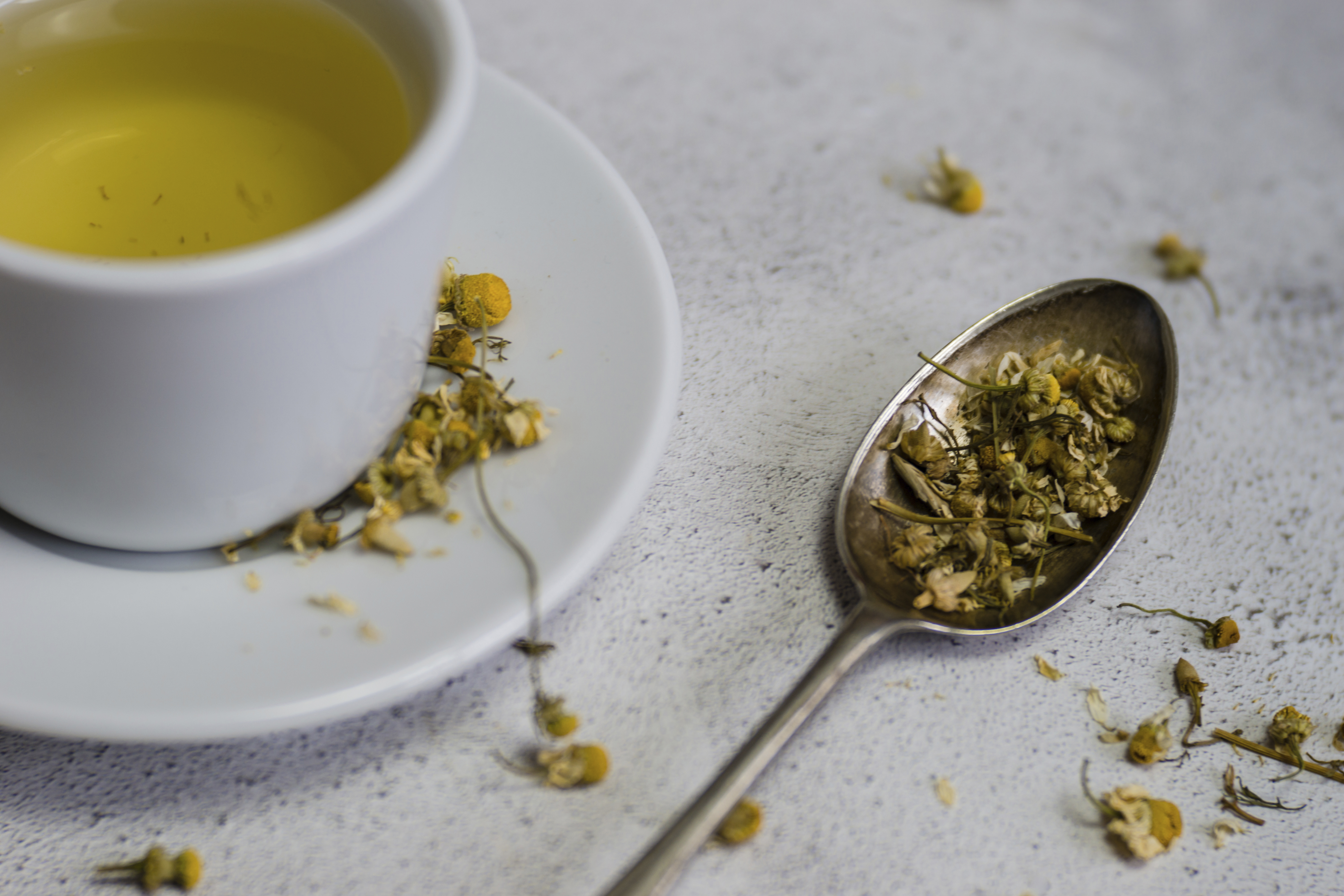
What you eat and drink before you tuck yourself in for the duration can contribute to peaceful sleep, or disrupt it. Here are foods that will help you doze off:
Tryptophan-containing food and drink
Did your mum recommend a milky drink before bed? She was wise. When it comes to sleep, dairy foods are your friend as they contain tryptophan, which promotes slumber. There’s one caveat, though. Hot chocolate (see below) likely contains caffeine, so opt for alternatives such as Ovaltine or Horlicks.
If you’re thinking about your evening meal, it helps to know that eggs also contain tryptophan. Other ways to add it? Honey is also a source, and vegans will be delighted to hear that it can be obtained through oats, nuts, seeds and bananas.
Camomile tea
Although this is reputed to aid sleep, the evidence isn’t strong. However, it doesn’t contain caffeine, so it can be a sensible choice for your nighttime beverage – providing you don’t brew up too late in the evening.
Carbohydrates
Apologies, those on low-carb diets, you are missing out on a key to a better night. We’re talking bread and cheese, maybe, crackers, a few nuts, or even cereal plus milk. Don’t go overboard, though (see below). A snack-size quantity is what you’re aiming for.
Lettuce
Sounds weird, but you may recall Beatrix Potter’s ‘The Tale of the Flopsy Bunnies’, where an over-indulgence in lettuce saw the rabbits overcome with slumber. We don’t suggest it’ll have such pronounced results for you, but there is some evidence to suggest it might be worth consuming lettuce as part of your evening meal.
11. And avoid foods that may keep you awake
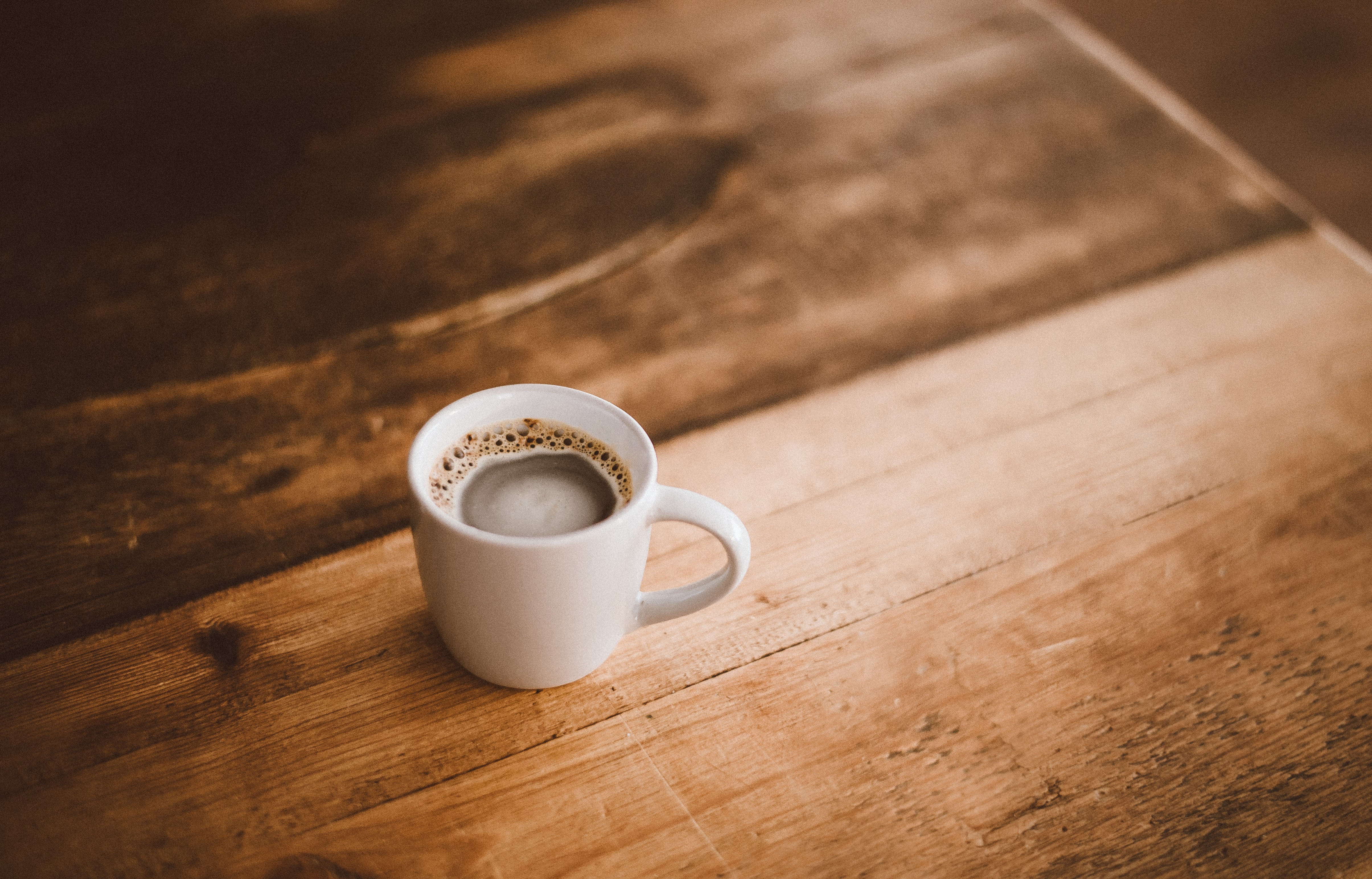
Caffeine-containing drinks
You know to avoid coffee, of course, but don’t forget that stimulating caffeine can lurk in other evening favorites. Tea contains it, as does chocolate, and colas. Cut them out from around six hours before you lie down for the night.
Any fluids after hours
What do we mean by after hours? Think about finishing all you’re going to drink two or three hours before you turn in if you don’t want to be woken by an urge to visit the toilet.
Alcohol
You can call it a nightcap if you like, but that doesn’t mean it will help you sleep for eight hours. Although it might mean you nod off faster, alcohol can cause you to wake during the night. Stop drinking in good time – four hours at least before bed, and better six.
Heavy and spicy meals
Naturally, there are going to be times when you enjoy a feast, but for the benefit of your slumber, plan to eat early enough for a few hours of digestion before your bedtime.
Inclined to get heartburn? Don’t go for super spicy meals at nighttime if you like the idea of a peaceful night.
12. Allocate 'worry time' way before you get into bed
Stress the night before? A simple step to reduce the racing mind is to mentally put the day to rest. An hour before bed, take a pen and paper, and write down everything important that you need to remember for tomorrow. If those same thoughts pop up while you’re in bed, tell yourself it’s on the page, it’s safe to let it go.
If worry interferes with your day or night, set aside a time each day to give your worries some serious attention. Allocating a 20 minute ‘worry time’ into your schedule can help prevent unhelpful thoughts intruding at other times. During worry time, reflect and write about your worries. When worry time comes to an end, move on.
13. Don't worry about lost sleep too much
One of the unfortunate side effects of wanting to sleep better is worrying too much about not getting enough of it. Try not to be too anxious about a poor night's sleep, advises Sophie:
Good news - your brain is very good at recovery sleep. The night after a restless night, the odds are that you will sleep more deeply. You don’t need to catch up on every single lost hour of sleep, hour by hour. Going to bed much too early, or having an extended lie in, will confuse your body clock. Aim to stick to the same bedtime and wake times to within an hour or two, 7 days a week.
14. Try listening to nature sounds
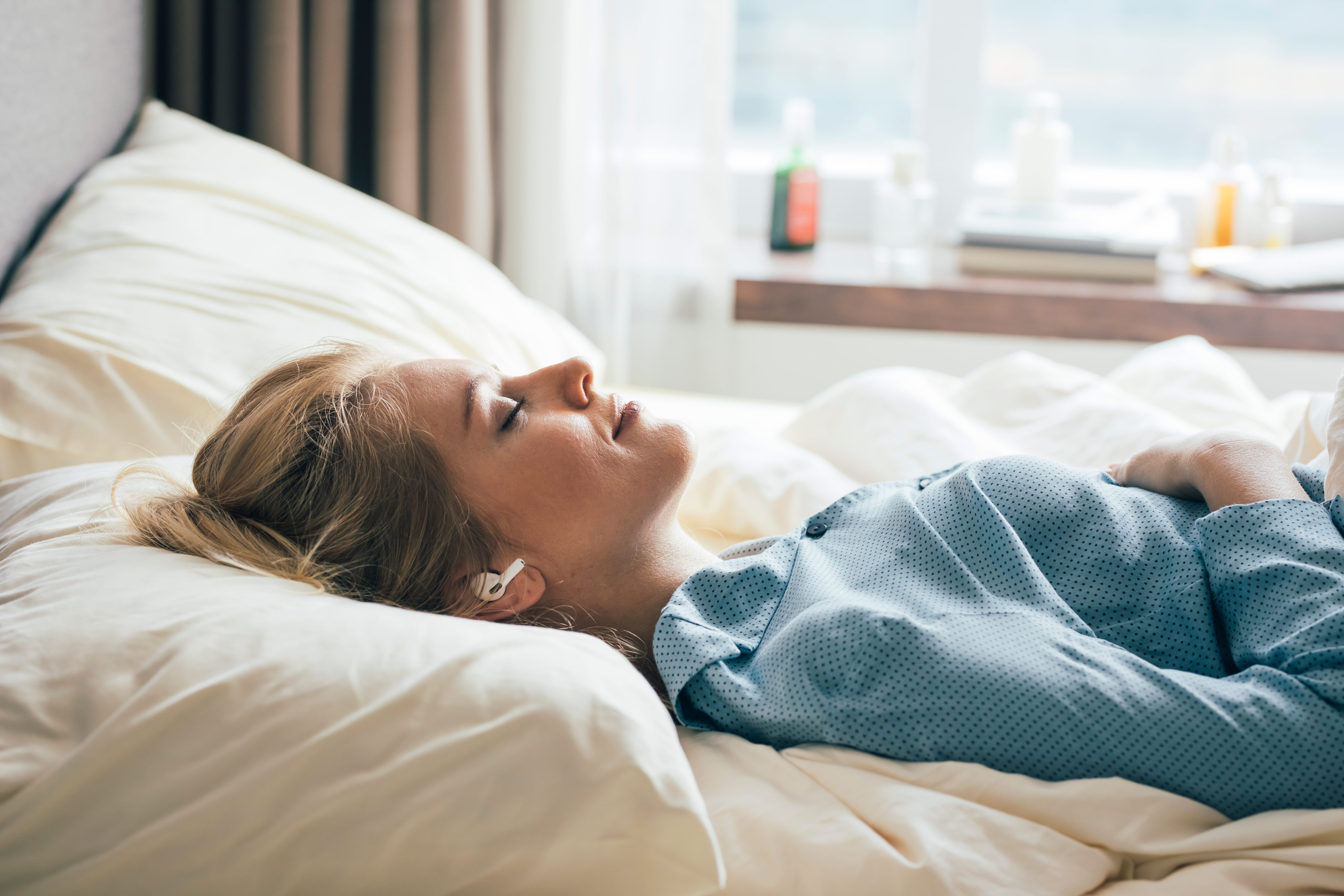
There is a reason why YouTube is full of eight-hour videos of rain, wind, and ocean waves: the sounds of nature really do help you relax. Recent research demonstrates that listening to nature sounds (as opposed to artificial or man-made sounds or music) makes us externally focused, diverting our minds from anxious thoughts that prevent us from sleeping.
If you sleep on your own, you can try having a nature sound recording playing very quietly in the background all night; if you sleep with someone else, this might not be an option, but you can always invest in a pair of wireless headphones.
15. Remove all clocks from your bedroom
It is common to watch the clock when we are awake at night. For some of us, this can increase our anxiety levels and further prevent us from being able to fall asleep. It is not necessary to remove the clock, as, for example, some people rely upon their alarm clocks to get them up in the morning, but having the clock face out of sight will help reduce any sleep anxiety.
16. Avoid binge-watching TV
Self-isolating may lead to a desire to binge-watch TV boxsets. While watching back-to-back episodes of your current favorite show may feel like a relaxing escape at the end of the day, it’s actually getting your brain fired up, not helping it wind down. Plus it’s well known that we should stop using electronics an hour before bedtime because of the blue light emitted. And given the current crisis, watching the news or social media feeds can prove quite distressing, so avoid doing so in the run-up to bedtime.
17. Sleep in a colder bedroom
This may seem counterintuitive, but most people sleep better in cooler temperatures, usually between 16 and 18°C. This will vary somewhat from person to person, but generally, anything under 12°C or over 23°C will be uncomfortable for most people. So, if you're heating your bedroom at night and can't sleep, try turning the heating off completely.
18. Stop working in your pyjamas
Now that most of us are working from home, you may be beginning to wonder whether it's worth getting dressed anymore. Why not just roll out of bed and start working?
Resist this temptation. Lee Chambers, Advanced Sleep Practitioner and Performance Nutritionist at Essentialise Workplace Wellbeing explains, 'As you psychologically connect your pajamas with winding down for bed, you will lose this attachment if you start working or homeschooling in them, so make sure you get dressed for your task in the morning.'
18. Practice mindfulness
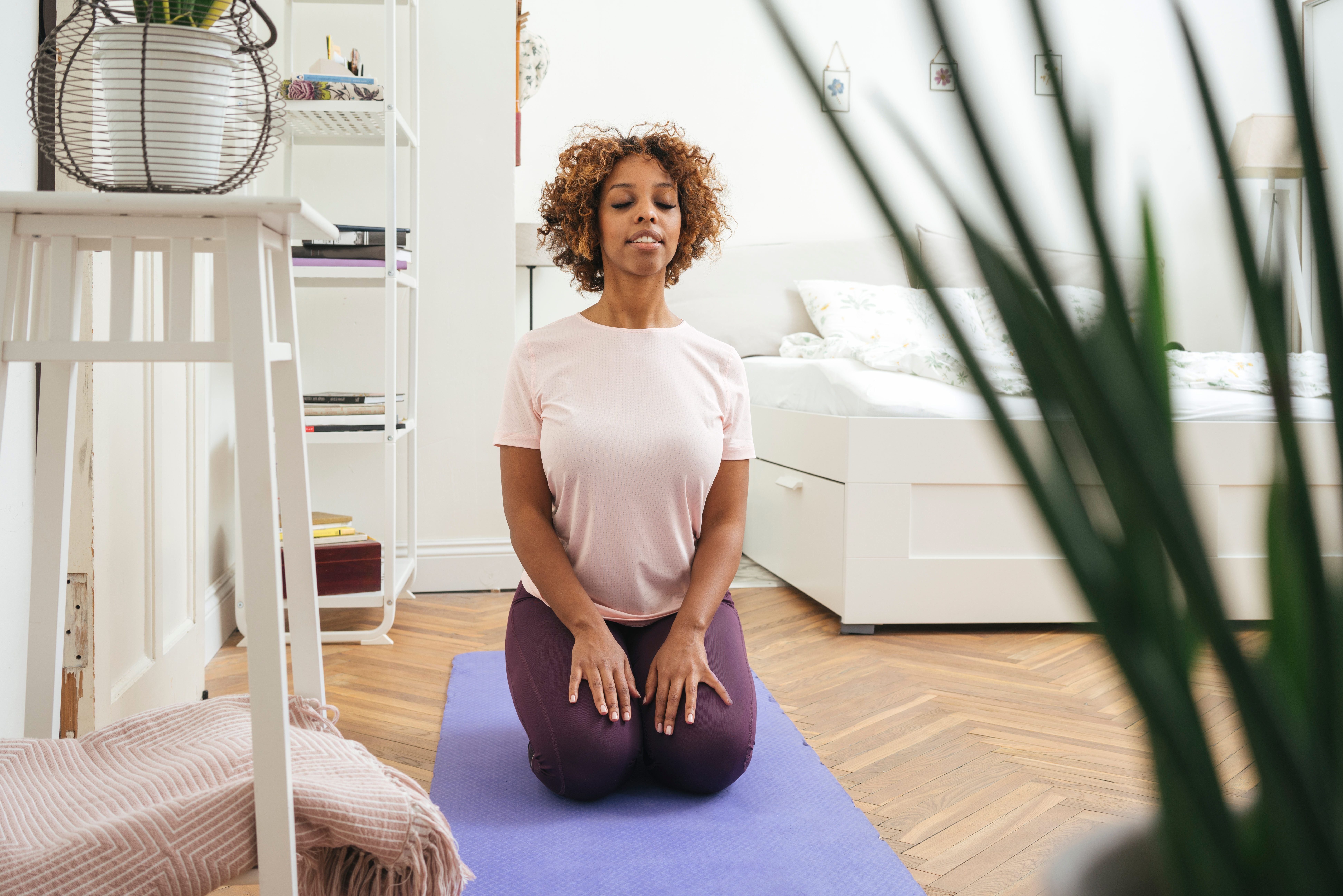
There are all sorts of mindful exercises you can do to try and calm a racing mind that's stopping you from sleeping. Neuro-Linguistic Programming Trainer Rebecca Lockwood has a suggestion:
'Place your hand on your heart and check-in with yourself. We search outside of ourselves in an attempt to give ourselves meaning. When we come back into ourselves and really check in with us and who we are the whole world shifts around us, including the way we think, feel and the way we show up in the world.
'Place your hand on your heart, take a few deep breaths, and settle yourself with the strength of your beating heart. Just sit and listen to the beating of your heart and the sound of your breath. You can do this for seconds, minutes or an hour. This helps us get out of our heads and into our heart, our heart always knows the answer.'
19. Explore aromatherapy (beyond lavender)
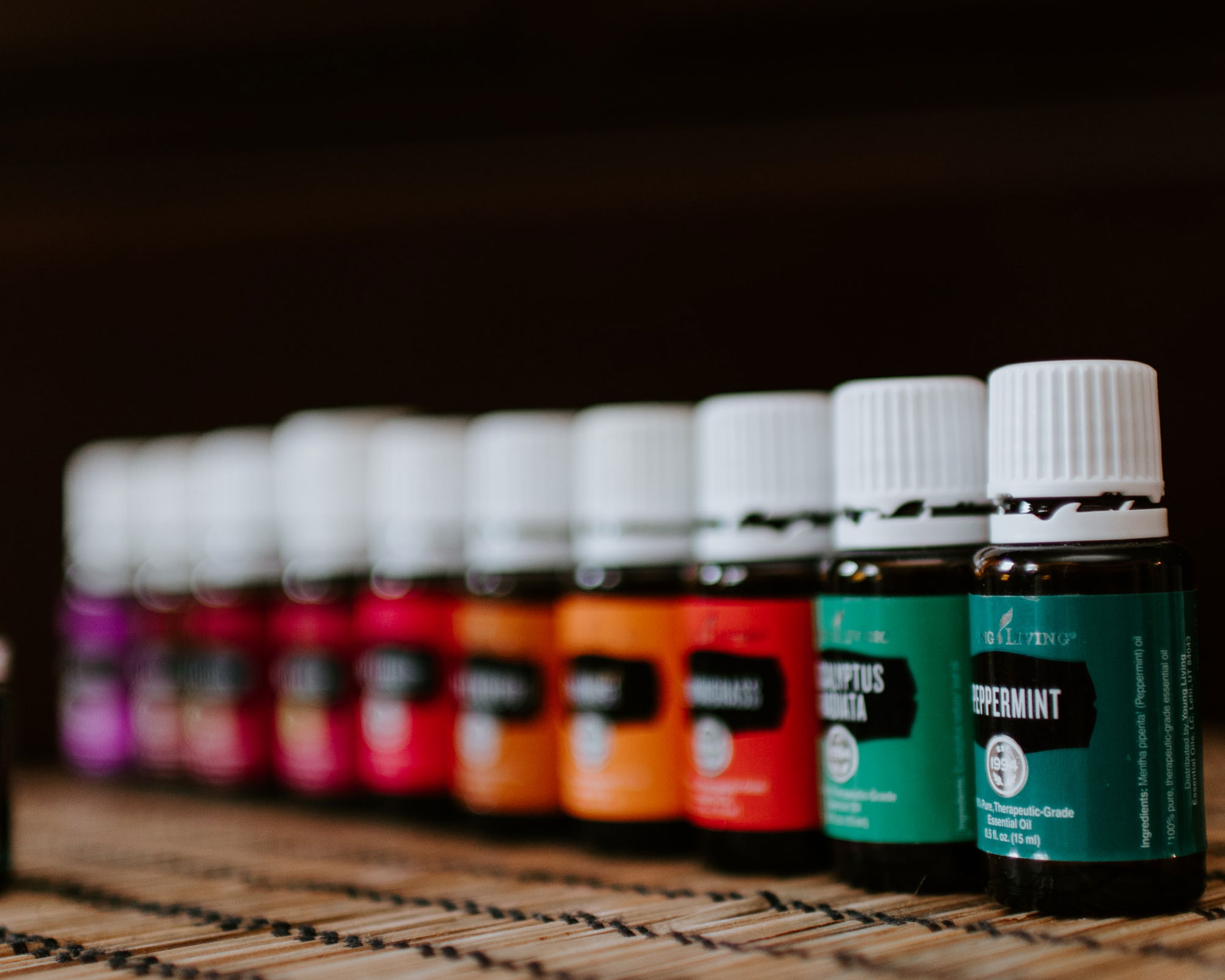
Most of us have heard about the calming properties of lavender, but there are all sorts of other essential oils that have similar properties and can be custom blended to create the ultimate soothing fragrance that will help you drift off. Try a combination of bergamot, vetiver, jasmine, sandalwood, and geranium essential oils. Avoid bright citruses such as sweet orange as they're more likely to keep you awake.
Browse our pick of the best essential oil diffusers to use in your bedroom.
- Browse our pick of the best essential oil diffusers to use in your bedroom.
20. And breathe
Tuning into your breathing can be a major help if you're having trouble sleeping. Not only can this activity distract your mind from stressful thoughts and help you to unwind and engage with your body. Mindful breathing exercises can help your body and mind to find calm at the end of the day.
Dr. Grandner, Casper sleep advisor & director of the Sleep and Health Research Program at the University of Arizona, highlights that "the key is to take deep, slow breaths in, hold it for a few seconds, and then exhale very slowly."
This is known as diaphragmatic breathing, which is simple and can be done in a few minutes as you lie in bed. "If your stomach expands as you breathe in and pushes in when you breathe out, you are breathing diaphragmatically."
Join our newsletter
Get small space home decor ideas, celeb inspiration, DIY tips and more, straight to your inbox!
Anna is a professional writer with many years of experience. She has a passion for contemporary home decor and gardening. She covers a range of topics, from practical advice to interior and garden design.
-
 Shoppers approve of this Wayfair cooling mattress on sale now for less than $270
Shoppers approve of this Wayfair cooling mattress on sale now for less than $270See the Wayfair cooling mattress with over 18k reviews and 4.6 stars for summer sleeping. Plus, more cooling sleep essentials on sale now
By Emily Lambe
-

 Turmerry Latex Mattress Topper review: a perforated pick for the perfect night's sleep
Turmerry Latex Mattress Topper review: a perforated pick for the perfect night's sleepContributing editor, Paige Cerulli tests the Turmerry Latex Mattress Topper in her midwestern home
By Paige Cerulli
-
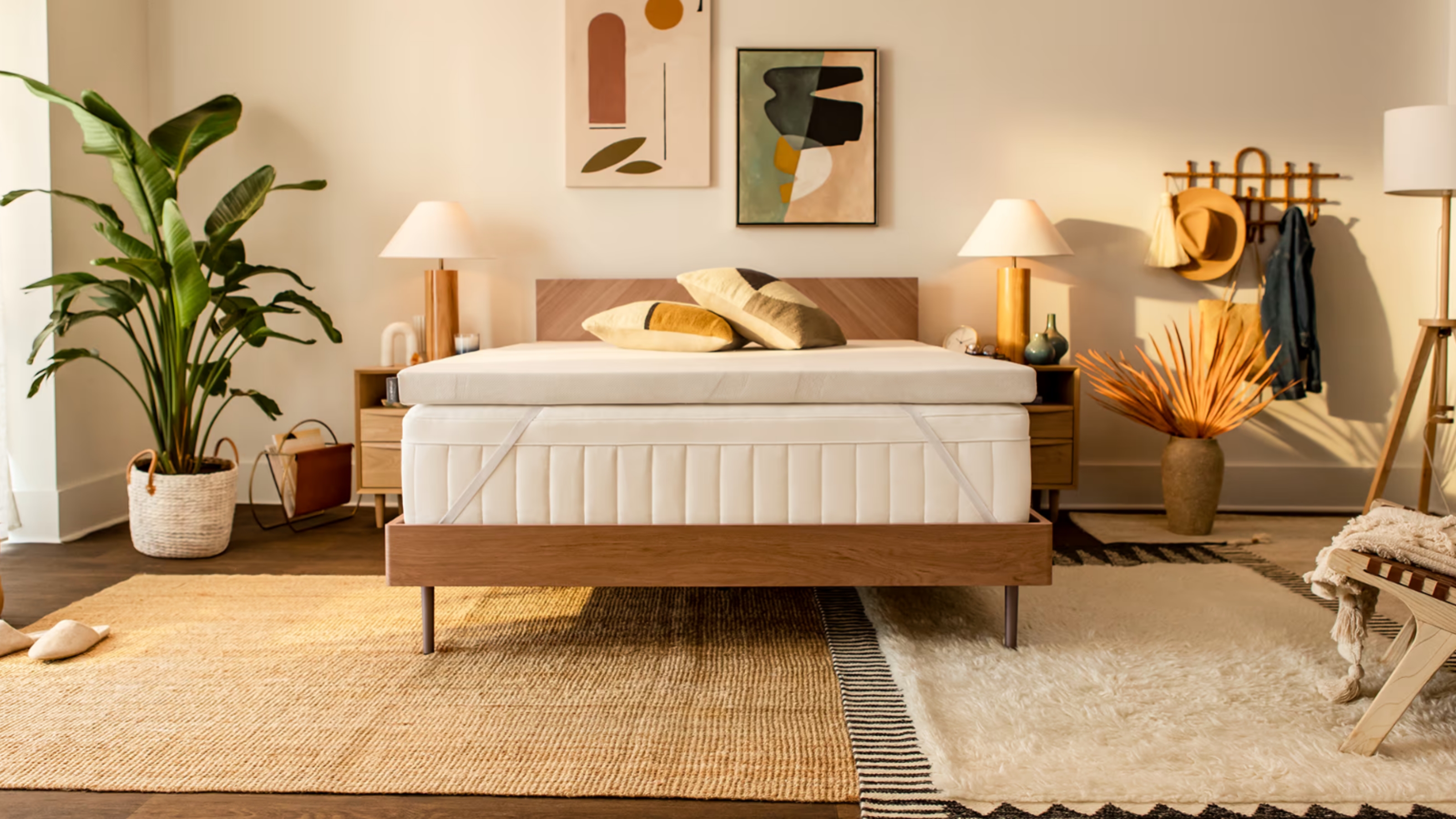 6 best cooling mattress toppers and pads to buy — from $89.99
6 best cooling mattress toppers and pads to buy — from $89.99Half a dozen of the best cooling mattress toppers and pads to buy if you are a hot sleeper, or live in a warm climate. Including Surbtex and Tempur Pedic options
By Christina Chrysostomou
-
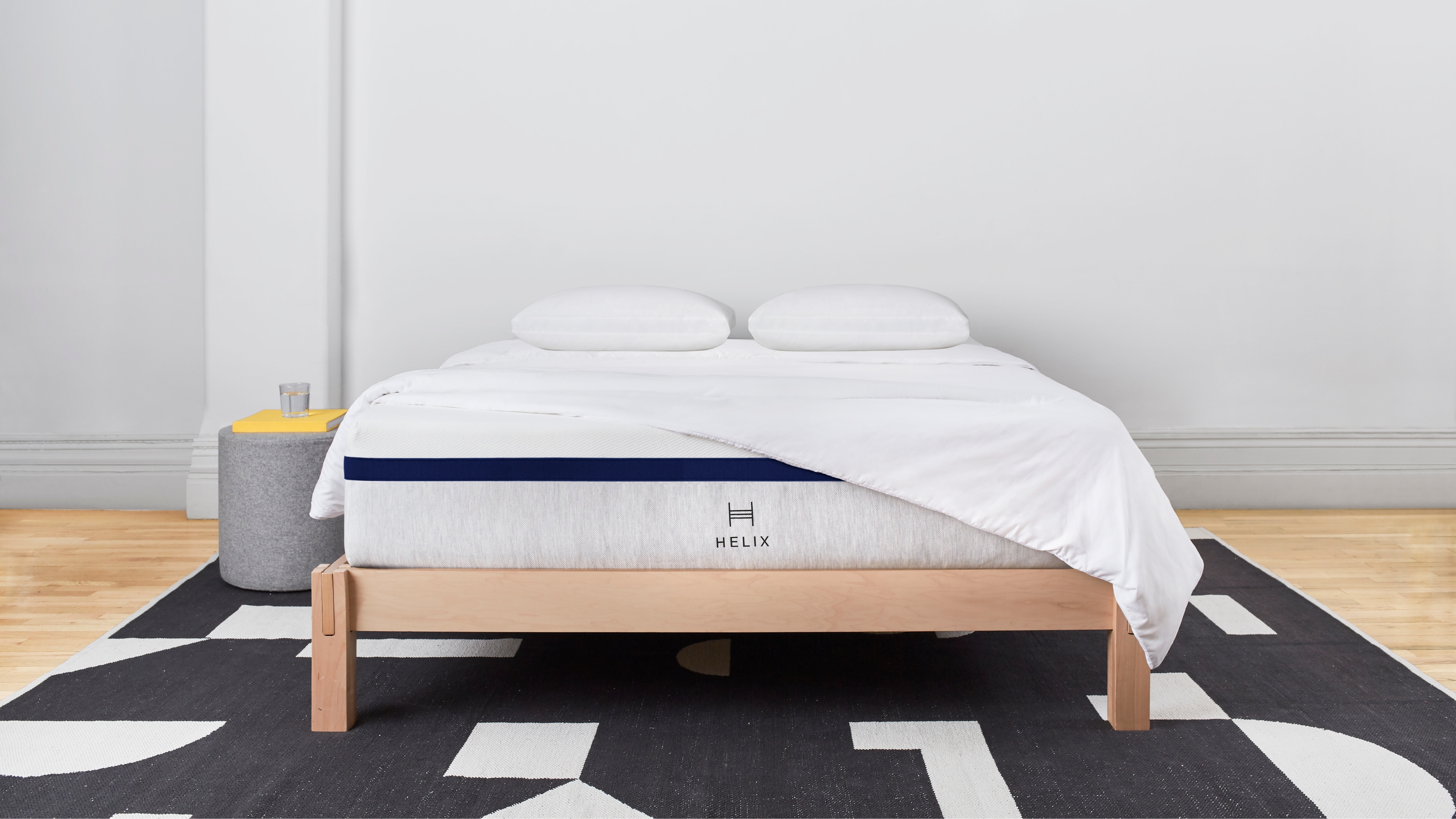 Helix Midnight Mattress: As a front sleeper, I declare it the comfiest base I've ever slept on
Helix Midnight Mattress: As a front sleeper, I declare it the comfiest base I've ever slept onSee our Helix Midnight mattress review to see if this hybrid design is right for you. We tested it out for over one month to find all the pros and cons.
By Emily Lambe
-
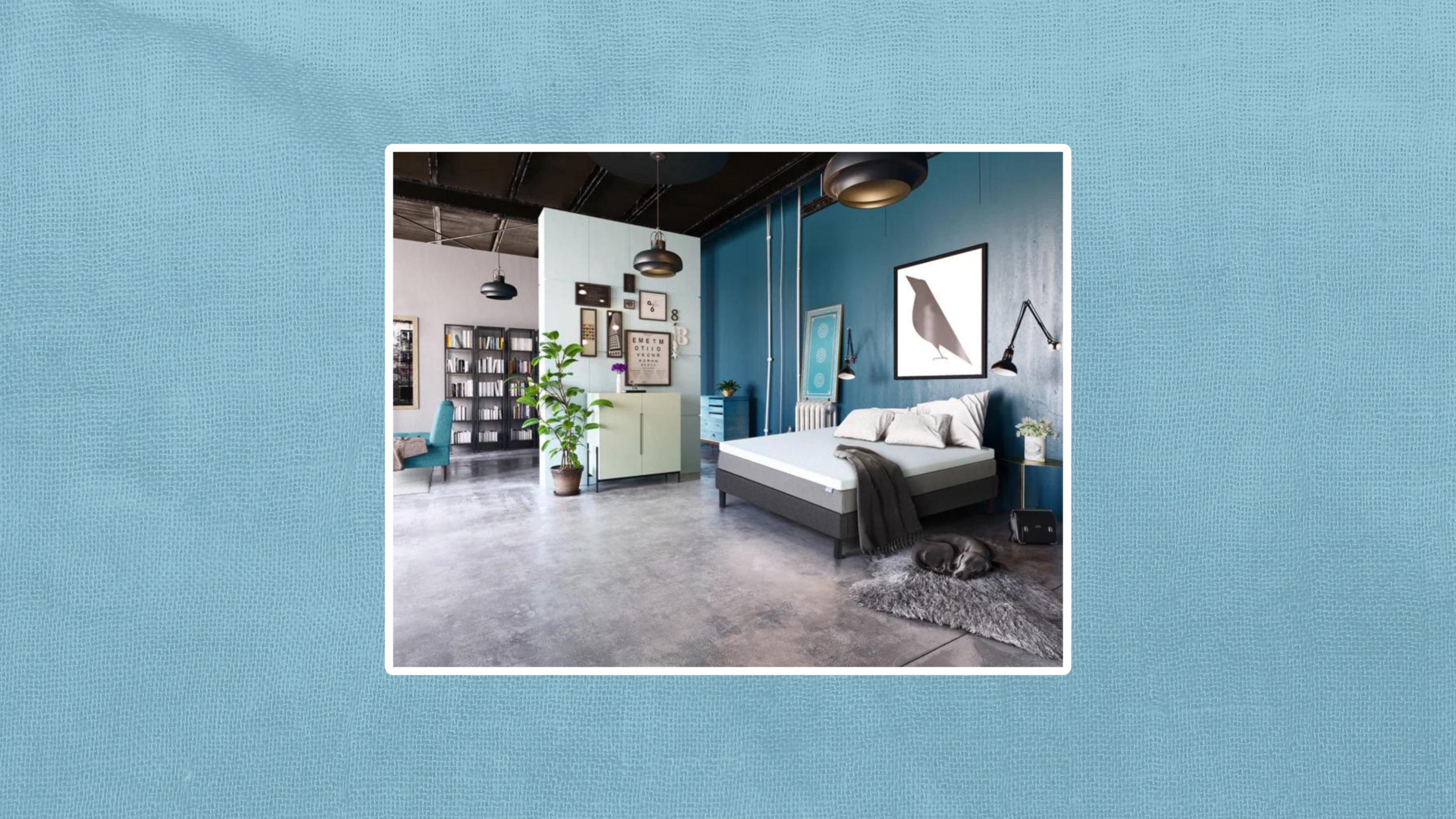
 Zinus ultra cool gel mattress topper review
Zinus ultra cool gel mattress topper reviewOur freelance contributor Camryn Rabideau shares her thoughts on the Zinus Ultra Cool Gel Memory Foam Mattress Topper after four weeks of sleeping on this temperature-reducing bedding accessory.
By Camryn Rabideau
-
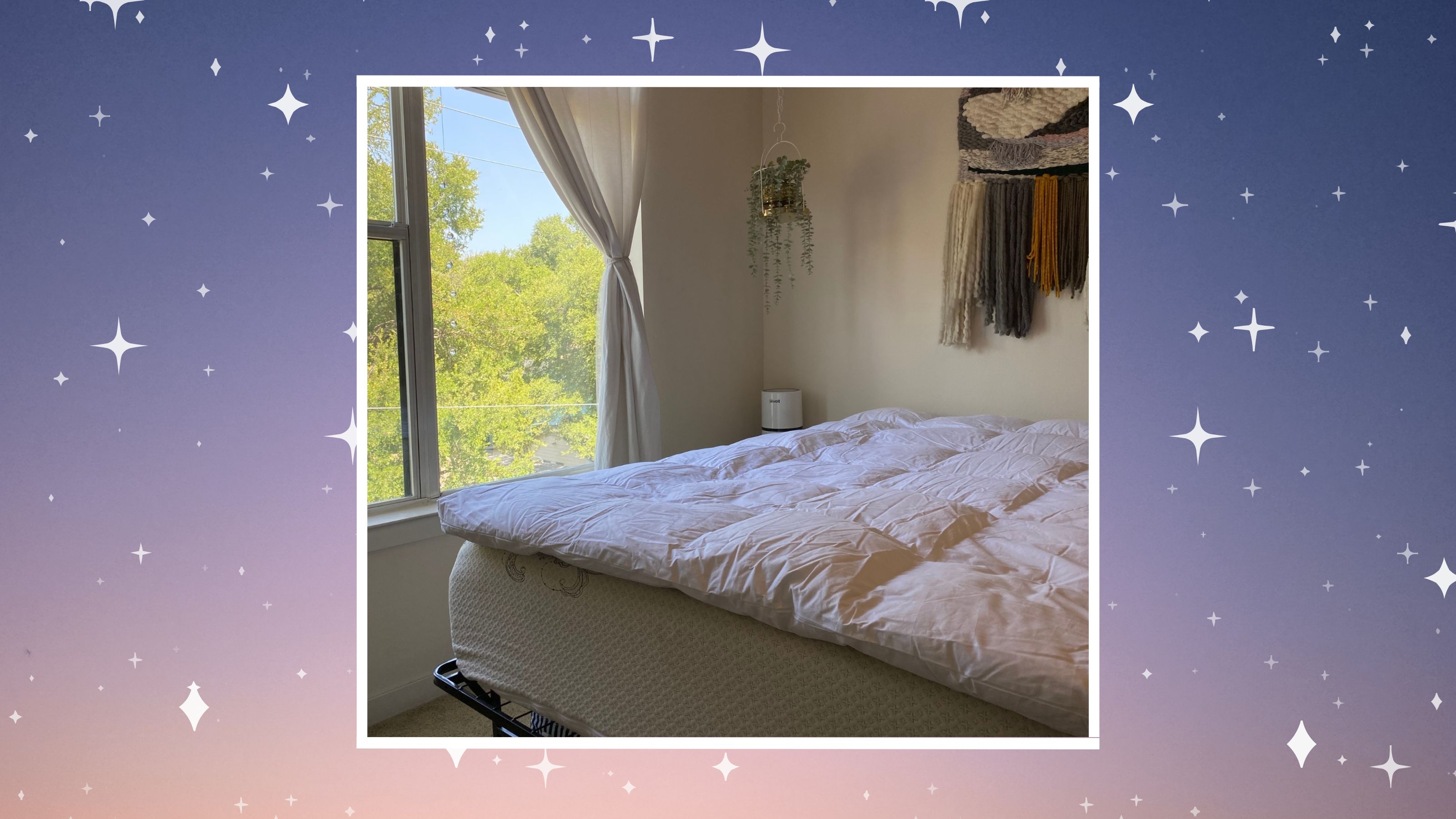
 This Parachute mattress topper is the cure for an uncomfortable mattress — especially if you're a back sleeper
This Parachute mattress topper is the cure for an uncomfortable mattress — especially if you're a back sleeperThis Parachute Mattress Topper transformed my years-old mattress from sad to super soft. It's so comfortable for back sleepers like me.
By Rose Cain
-
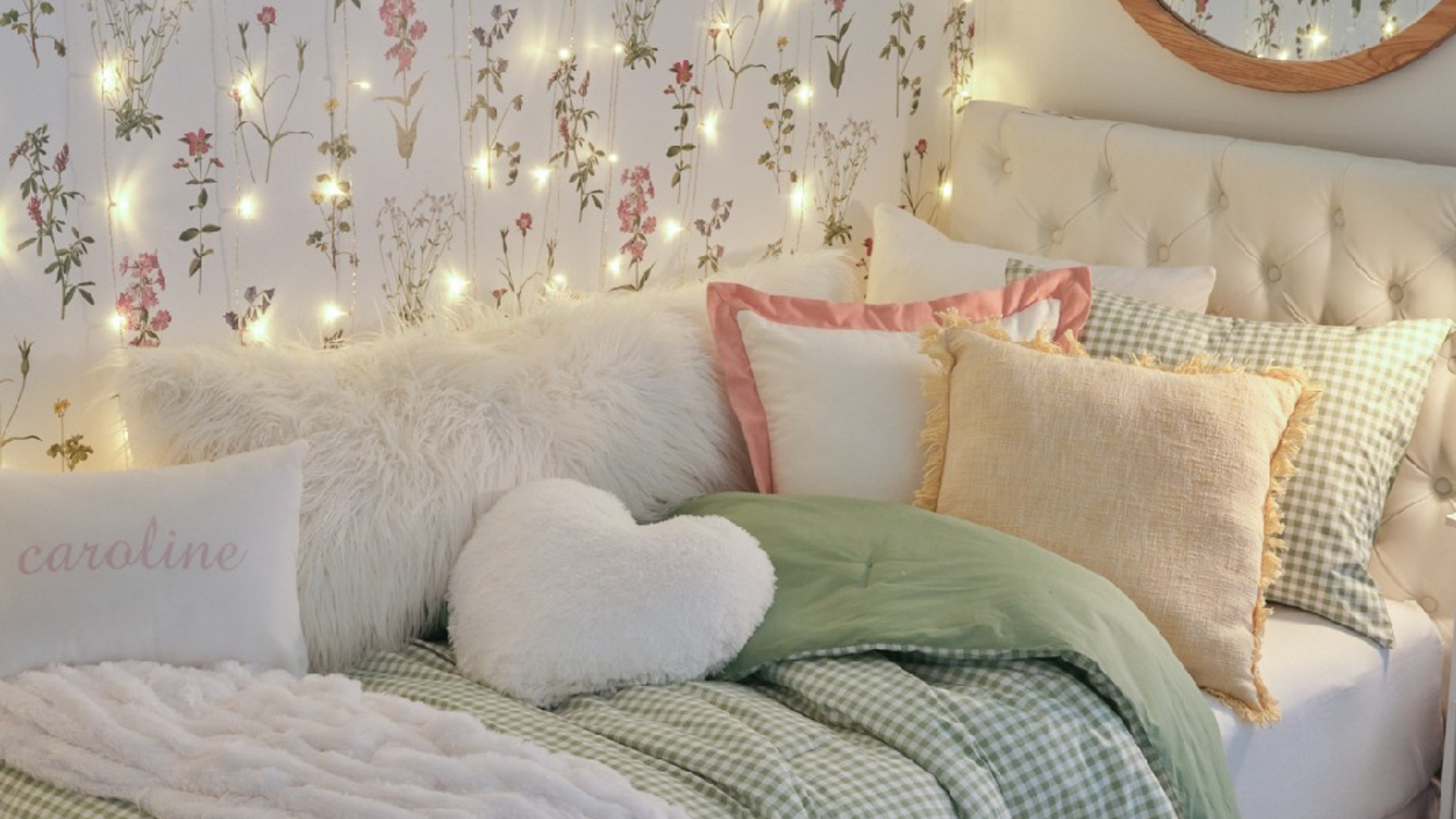 6 ways to stay warm in your dorm room when it's freezing outside
6 ways to stay warm in your dorm room when it's freezing outsideFeeling the chill this semester? See our top ways to stay warm in your dorm room without pissing off your roommate or RA including bedding ideas.
By Kara Thompson
-
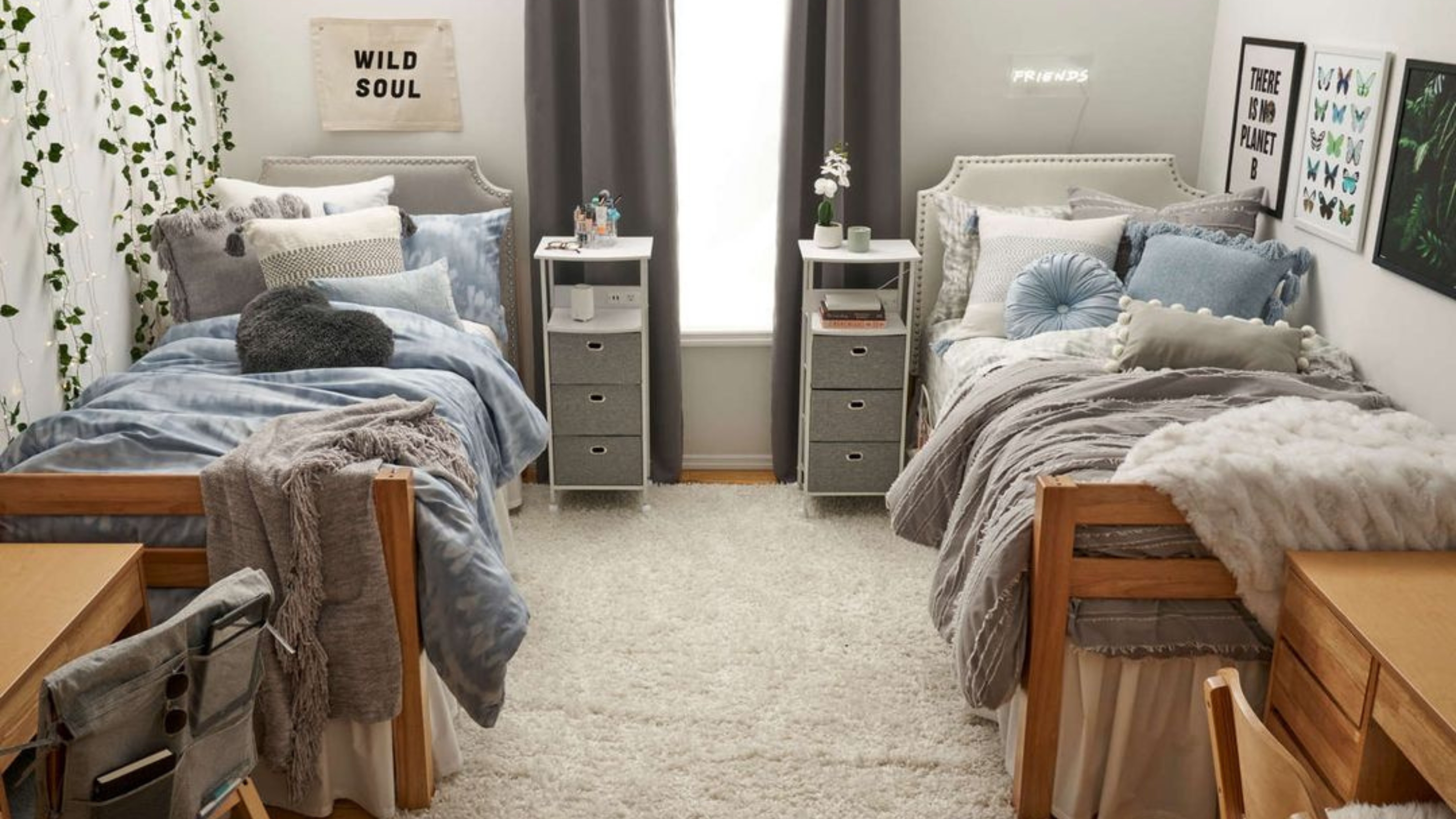 10 tips for *actually* getting some shut eye in a dorm, straight from sleep experts
10 tips for *actually* getting some shut eye in a dorm, straight from sleep expertsYes, we're talking about a *real* all-nighter!
By Danielle Valente